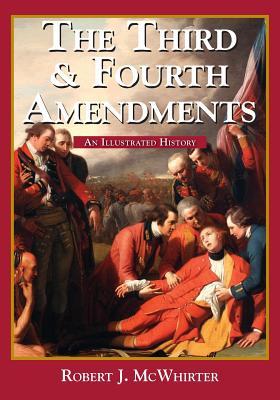Are the third and fourth amendments relevant today? We no longer fear having soldiers living in our houses and we accept that search warrants are not issued without probable cause. But the third amendment addressed the Founders' underlying fear of creating a standing army, seeing it as a potential threat to democracy, and the fourth amendment attempted to restrict broad, non-specific searches. As the world's supreme military power, we obviously overcame the former fear, and the Supreme Court has created so many exceptions to the latter that the original intent has been hollowed out. The journey of the meaning, history, and interpretation of the third and fourth amendments, from 1791 to today, is recounted here.
Written for the interested citizen, as well as the civics student, Robert McWhirter traces the histories with which the founders were familiar, recounts their recent experience as a colony, and how each affected their thinking and drafting. On the journey there are surprising, and interesting, diversions into the way the events and personalities have appeared in literature, film, sports, and popular culture.
This book was originally published as chapters three and four of Bills, Quills, and Stills: An Annotated, Illustrated, and Illuminated History of the Bill of Rights.
